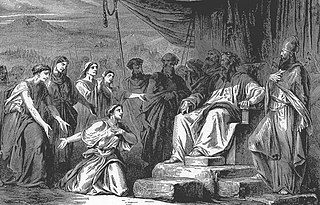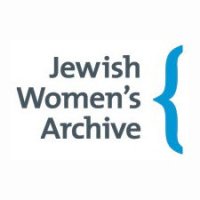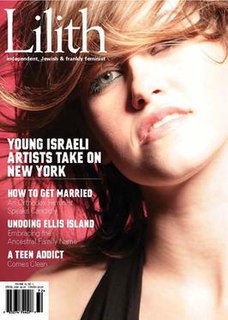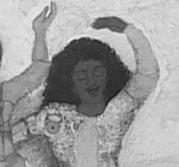 W
WThe American Jewess (1895–1899) described itself as "the only magazine in the world devoted to the interests of Jewish women." It was the first English-language periodical targeted to American Jewish women, covering an evocative range of topics that ranged from women's place in the synagogue to whether women should ride bicycles. The magazine also served as the publicity arm for the newly founded National Council of Jewish Women. The American Jewess was a periodical “published in Chicago and New York between 1895 and 1899” in order to represent the ideas that were important to the American Jewish community during this time. This magazine, though it is not widely remembered in modern society, “was the first Jewish women's journal edited by women that were independent of any organizational or religious ties,” along with the “first English-language journal independently edited by women.”. During the magazines “four years of publication, The American Jewess presented items on contemporary politics, literary figures, aesthetic issues, and… practical matters” along with “book reviews and a children's department." In all of its publications, the magazine engrained its contents with “a Jewish political agenda as well as a feminist agenda,” both of which were often combined “to produce both a strongly Zionist and an early feminist publication." During its time in publication, the magazine published 46 issues throughout four and a half years, producing a circulation totaling approximately 31,000.
 W
WThe Daughters of Zelophehad were five sisters - Mahlah, Noa, Hoglah, Milcah, and Tirzah - mentioned in the Hebrew Bible, who lived at the end of the Israelites' Exodus from Egypt as they prepared to enter the Promised Land and who raised before the Israelite community the case of a woman's right and obligation to inherit property in the absence of a male heir in the family. Zelophehad, a man of the Tribe of Manasseh, had five daughters but no sons, and therefore no male heirs.
 W
WFear of Flying is a 1973 novel by Erica Jong which became controversial for its portrayal of female sexuality and figured in the development of second-wave feminism.
 W
WThe Jewish Women's Archive (JWA) is a national non-profit organization whose mission is to document "Jewish women's stories, elevate their voices, and inspire them to be agents of change."
 W
WThe Kotel compromise is a compromise reached between orthodox and non-orthodox Jewish denominations, according to which the non-Orthodox "mixed" prayer area for men and women was supposed to be expanded in the southern part of the Western Wall. In contrast to the existing situation, access to this "mixed" prayer area was supposed to be from the main entrance to the Western Wall, and in addition it was supposed to be run by a council in which representatives of the non-Orthodox denominations and women of the Wall.
 W
WLilith magazine is an independent, Jewish-American, feminist non-profit publication that has been issued quarterly since 1976. The magazine features award-winning investigative reports, first-person accounts both contemporary and historical, entertainment reviews, fiction and poetry, art and photography. Topics include everything from rabbinic sexual misconduct, to new rituals and celebrations, to deconstructing the JAP stereotype, to understanding the Jewish stake in abortion rights.
 W
WScapegoat: The Jews, Israel, and Women's Liberation is a 2000 book by the Jewish-American radical feminist author and activist Andrea Dworkin.
 W
WSeder-Masochism is a 2018 American animated musical biblical comedy-drama film written, directed, produced and animated by American artist Nina Paley. The film reinterprets the Book of Exodus, especially stories associated with the Passover Seder, such as the death of the Egyptian first-born, and Moses leading the Israelites out of slavery in Egypt. The film depicts these events against a backdrop of widespread worship of the Great Mother Goddess, showing the rise of patriarchy.
 W
WTimbrels and Torahs is a 2000 documentary film written, produced and directed by Judith Montell and Miriam Chaya. The film explains a new Jewish ritual designed to celebrate women on their 60th birthday.
 W
WWomen of the Wall is a multi-denominational feminist organization based in Israel whose goal is to secure the rights of women to pray at the Western Wall, also called the Kotel, in a fashion that includes singing, reading aloud from the Torah and wearing religious garments. Pew Research Center has identified Israel as one of the countries that place "high" restrictions on religion, and there have been limits placed on non-Orthodox streams of Judaism. One of those restrictions is that the Rabbi of the Western Wall has enforced gender segregation and limitations on religious garb worn by women. When the "Women of the Wall" hold monthly prayer services for women on Rosh Hodesh, they observe gender segregation so that Orthodox members may fully participate. But their use of religious garb, singing and reading from a Torah have upset many members of the Orthodox Jewish community, sparking protests and arrests. In May 2013 a judge ruled that a 2003 Israeli Supreme Court ruling prohibiting women from carrying a Torah or wearing prayer shawls had been misinterpreted and that Women of the Wall prayer gatherings at the wall should not be deemed illegal.
 W
WWomen's Rabbinic Network is an American national organization for female Reform rabbis. It was founded in 1975 by female rabbinic students. Rabbi Deborah Prinz was its first overall coordinator and Rabbi Myra Soifer was the first editor of its newsletter.